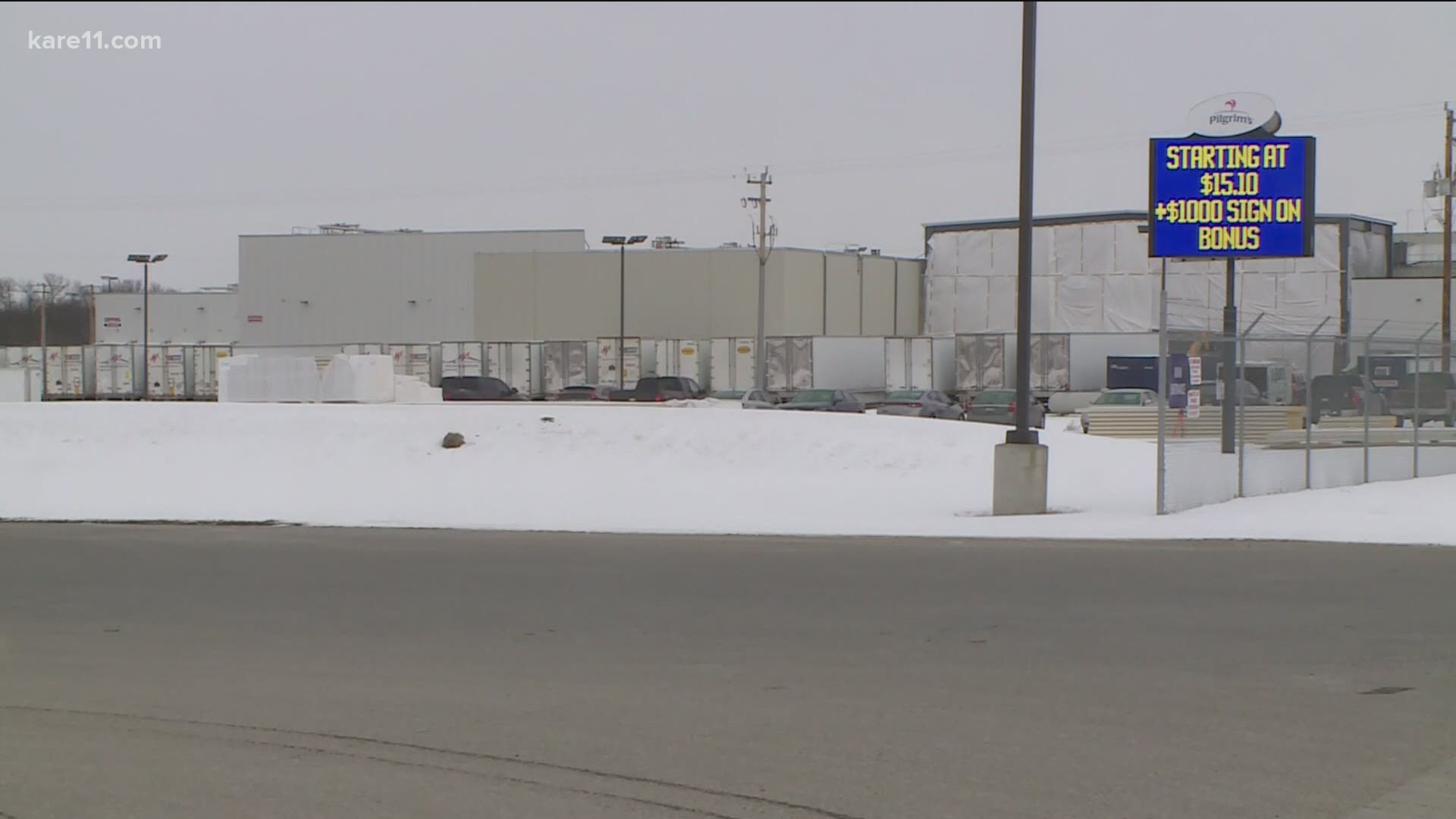ST PAUL, Minn — DFL lawmakers are looking to increase safety at meat and poultry processing plants in Minnesota, in an effort to prevent the types of coronavirus outbreaks traced to plants in 2020.
Rep. Dan Wolgamott of St. Cloud said he wants uniform standards that provide protections for those essential workers who speak up about safety and sanitation issues. His bill would also require meat and poultry processors to provide paid sick leave so that employees can fully recover from COVID-19 and other illnesses and care for sick family members.
"We want to give all meat and poultry processing workers the right to refuse unsafe work, which they believe would expose themselves to unreasonable risk or illness," Rep. Wolgamott told reporters in a Zoom press conference Wednesday, citing reports of workers who feared taking time off to recuperate.
"You should never have to choose between providing for your family financially and keeping your family safe."
The proposal has the full support of House leadership, so it's very likely it will pass through committees and see a floor vote later this session.
"I want to thank these workers who do some of the hardest work that there is, and they do this work to put food on our kitchen tables," House Speaker Melissa Hortman remarked.
"In 2021, in the midst of a pandemic we have no excuse for not taking bold action to make sure that every Minnesota worker is able to go to a safe working environment."
In 2020, there were major regional coronavirus outbreaks traced to the work force at the JBS pork processing plant in Worthington and at the Pilgrim's Pride poultry plant in Cold Spring. The issue became so urgent across the nation that many processing plants, including JBS, had to close temporarily because so many employees were ill or in quarantine.
Eventually Minnesota hog farmers were forced to destroy tens of thousands of animals because the grew too large to be processed at JBS and other plants that were temporarily shuttered.
Matt Utecht of United Food and Commercial Workers, the union that represents many packing plant employees, said that some workers were too afraid of losing their jobs to speak out about conditions inside plants. Those facilities, when running at full capacity, require workers to stand close together on production lines.
"It took a worldwide pandemic to pull back the curtain for the public to really see inside of these packing plants and see the kind of work that takes place in there," Utecht remarked.
State and federal agencies worked with plant management and the unions to find ways to return to production and improve conditions. Processing plant companies received this detailed guidance on virus safety protocols from the Minnesota Dept. of Labor and Industry, Minn. Dept. of Agriculture and Minn. Dept. of Health.
Those recommendations included things like staggering work shifts, sanitizing workstations, access to hand washing facilities, company-provided PPE and social distancing in employee break areas.
Industry response
AgriGrowth, a Minnesota food industry association, won't comment on the merits of the proposal until the full language of the bill is released later in the week. In the meantime, the organization issued this statement:
"Throughout the pandemic, when speaking with Minnesota farmers, food processors, associations and AgriGrowth members who represent industries across the food supply chain - the safety, health and wellbeing of their employees has been the top priority.
"Processing plants have implemented numerous additional rigorous health standards since the beginning of the pandemic, heeding science-based health guidelines to protect workers and ensure healthy food production for consumers, operating under the guidance of the USDA, OSHA, CDC and other government agencies.
"Because of our industry’s work to protect and support all of their workers on the frontline of this pandemic, AgriGrowth is also strongly advocating for the prioritization of agri-food workers in early phases of the vaccine rollout.
"Our industry has been critical throughout this pandemic, and a key player in problem solving, innovating and adapting to protect the health of workers and feed consumers across the country. We look forward to reviewing this legislation when it is made available and will continue to work with lawmakers on both sides of the aisle to promote a safe, vibrant agricultural and food industry."
KARE reached out to several industry groups for reaction but hadn't heard back from them by deadline for this report.

